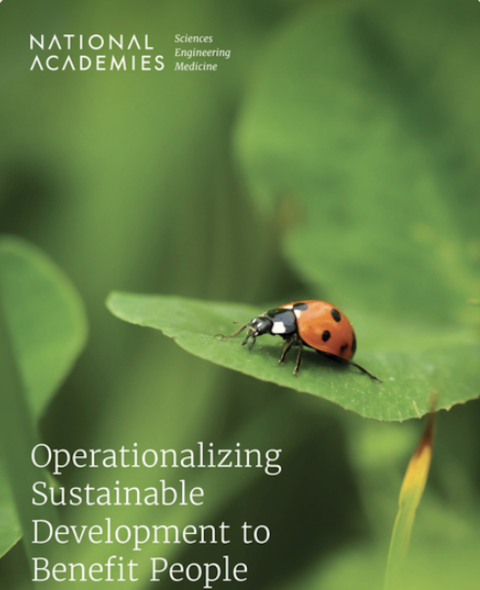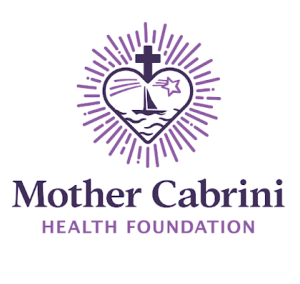
Invest NYC SDG Initiative
Featured Publications
The NYC SDG Portfolio
Sustainable Mobility

The Equitable Commute Project
Expanding micro-mobility as a sustainable and equitable commuting option is critical for transportation justice. The ECP is building public and private support to put 5,000 e-bikes in the hands of lower-income New Yorkers through a combination of steep negotiated vendor discounts, subsidies for purchase, and low-cost microlending through certified B-Corp and CDFI Spring Bank, including to people without credit histories. The ECP’s first distribution event occurred on December 2, 2021, at The HOPE Program’s Bronx offices. website
BUILT ENVIRONMENT

Driving Building Decarbonization with PACE Financing in NYC and Nationally
Since early 2020, Invest NYC SDG has worked closely with the Mayor’s Office of Sustainability and Environmental Justice (MOCEJ) under an MOU, as well as the NYC Energy Efficiency Corporation (NYCEEC) to develop an innovative data tool to help prioritize outreach to underlying mortgage lenders of buildings subject to Local Law 97, which mandates greenhouse gas emission reductions and penalties for 28,000 buildings.The data tool is searchable by mortgage lien holder and provides details on the portfolios of mortgage lenders and the carbon emitted by individual buildings and in the aggregate. We are using the data tool to leverage the interest of major banks to reduce their scope 3 emissions and take a leadership role in helping to decarbonize NYC buildings in their own portfolios.
Passive House Accelerator: Source 2050
A catalyst of zero carbon building, the Passive House Accelerator applies physics, building science, and digital modeling tools to optimize construction costs and building performance, reducing building heating and cooling energy use by 80-90%. Two major obstacles inhibit broader adoption of energy efficient and low carbon construction methods: workforce skills and product access. Source 2050 seeks to address product access by creating the first ever comprehensive high performance construction marketplace for professionals to collaborate and exchange practical, project-based techniques and discover the new products that make achieving these green construction goals possible. Source 2050 was selected as a NYU Tandon CUSP Capstone project for Spring 2022.
WASTE

Organic Solid Waste Processing and Resource Recovery
Low Carbon Concrete
As a use for glass waste and a component of concrete for building and infrastructure construction, ground glass pozzolan can provide an important contribution to New York City’s environmental commitment of zero waste to landfill by 2030. Recovery, processing, and use of NYC’s 180,000 tons of waste glass into ground glass pozzolan would also significantly reduce NYC's CO2 emissions. Invest NYC SDG is supporting Urban Mining Industries (UMI), the only commercial-scale glass pozzolan producer in the U.S., in securing a site near Sims Recycling’s South Brooklyn Marine Terminal MRF for the construction of a ground glass pozzolan plant, and product commercialization in the public and private sector in NYC.
FOOD AND HEALTH

FoodMap NY
The Mother Cabrini Health Foundation awarded $2.3M to help develop long-term solutions to food insecurity. FoodMap NY focused on ways in which private engagement and investment can provide long term, market-based solutions to food insecurity in underserved NYC neighborhoods and rural New York State communities. We can increase private-sector engagement by acting as a catalyst and matchmaker, working with partners to develop research-driven and community-backed plans for new public–private pilot programs that can boost resilience and equity in New York State’s food system. Explore the research and project reports.
M.A.P. NYC
Urban agriculture provides socioeconomic benefits to communities, improving access to fresh local food while offering educational opportunities and green jobs. Invest NYC SDG and NYU Tandon have built a wiki-style database, visualized as a map, to understand the extent and nature of agricultural production in NYC, as well as its correlation with neighborhood demographics, gentrification, and food security status. By creating a baseline of urban agricultural activity in NYC, we can help set production goals, advise on supportive government policies, assist growers in connecting with the resources they need to build thriving farm businesses, and ultimately help create well-paying green jobs. Explore the interactive map.
Healthy Corner Stores
Rikers Island Indoor Farm
Speaking Engagements
Indoor AgTech Innovation Summit 2023
Marianna Koval moderated a panel at the Indoor AgTech Innovation Summit 2023 on "Promoting CEA as a Critical Piece of the Food Security Puzzle." Panel speakers included Qiana Mickie, Deborah Koh, and Paul Sellew.

Brooklyn Chamber of Commerce 2023 Energy Summit and Expo
Marianna Koval participated in the "Who Will Pay? Financing the Transition to a Carbon-Free Environment" panel at the Brooklyn Chamber of Commerce's 2023 Energy Summit and Expo at the Brooklyn Navy Yard. The other speakers included Joshua Patton, William Fields, and Andrew Chintz. The panel was moderated by Dana Ware.

National Academies: Operationalizing Sustainable Development to Benefit People and the Planet

Circular City Week New York 2022 - Doing the SWMP: Planning for Zero Waste in Major Cities
Hosted by Kendall Christiansen, Executive in Residence, NYU Stern Center for Sustainable Busines. Cities need comprehensive long-term plans for managing all types of waste, including recyclables and organics. New York City's next Solid Waste Management Plan is due in 2025, with planning starting now. Planners from Toronto, Vancouver, Austin and Boston will describe their efforts.

NYC 2025: Road to Recovery with NYU Stern Center for Sustainable Business
On behalf of NYU Wagner and Stern Center for Sustainable Business, we invite you to join us for the opening panel discussion of the NYC 2025: Road to Recovery Series. We will be joined by experts and contributors to NYC 2025 as they discuss their vision for a stronger, fairer and more equitable New York City. NYC 2025 convenes non-partisan experts across a range of areas to hold an ongoing conversation about issues that must be addressed for the city to become stronger and more equitable than it was before COVID-19.

Operationalizing Sustainable Development: Financing for Sustainable Development
The National Academies of Sciences, Engineering, and Medicine's Committee on Operationalizing Sustainable Development held its second information gathering workshop on May 16-17, 2022. This virtual public workshop served as a central information-gathering mechanism for a consensus study examining key research priorities and possible actionable steps needed to operationalize sustainable development at global and local levels. The main objective of the second workshop was to gather information on positive case studies for operationalizing sustainable development at the global level. The short consensus report will be completed in 2022.
Decarbonizing NYC's Built Environment | CSB Practice Forum 2022
NYU Tandon Undergraduate Summer Research Program
Publications
Models for Financing the UN Sustainable Development Goals
This white paper was commissioned by the NYU Stern Center for Sustainable Business (CSB) to examine models for financing New York City’s sustainability goals as they are aligned with the UN Sustainable Development Goals, and inform its initiative, Invest NYC SDG. It is also intended to give cities everywhere an overview of various finance mechanisms, key players in financing, and analyses of key examples.
CSB is grateful for support from the following sponsors: ConEdison, Goldman Sachs, Pepsico, Sims Metal Management, and The New York Community Trust.
Creating a Sustainable, Inclusive, and Resilient Future Economy in New York City
NYU Wagner's NYC 2025 initiative called for a series of thoughtful, forward-thinking proposals laying out a practical path for the next Mayor and City Council to follow to ensure a more inclusive post-pandemic recovery for all. Each of the 21 papers helps answer the question, what does a stronger, fairer, and more equitable New York City look like? Marianna Koval wrote a policy proposal to help the next City Administration understand how it can partner with the business community to develop investable projects that advance New York City's sustainability goals.
Green Finance Innovation: How Mortgage Lenders Can Drive NYC Building Decarbonization
Climate change is moving the world toward global catastrophe. We need to act quickly to finance the solutions to cut carbon emissions and adapt to climate impacts. While the climate crisis presents major financial risks to business and society, it also offers opportunities for those willing to lead the transition to a sustainable, low carbon world. This is especially true in decarbonizing our built environment. This white paper attempts to lay out some of those risks and opportunities for the mortgage banking industry in New York City and is the result of four years of research and discussions with major stakeholders looking for solutions to support and finance building decarbonization. Our goal is to share concrete steps that the mortgage banking industry and climate financiers may undertake to lead real estate decarbonization in NYC, and create a model for the nation.
PARTNERS OF THE INITATIVE






INVEST NYC SDG TEAM
PROJECT LEADERSHIP
Marianna Koval, Director
Kendra Gibbs, Associate Director
EXECUTIVES IN RESIDENCE
Paul Lipson, Principal, Barretto Bay Strategies
Kendall Christiansen, Principal, Gaia Strategies
Gary Friedland, Scholar-in-Residence, NYU Stern School of Business
STUDENT RESEARCH ASSISTANTS
Alan Fang, BS in Business Candidate, NYU Stern
Justin Kono, MBA Candidate, NYU Stern
Mohamed Nazer, MBA Candidate, NYU Stern
Lena Renshaw, MBA Candidate, NYU Stern
Sevastian Sanchez, BA in International Relations & Public Policy Candidate, NYU
Kritik Seth, Master of Data Science Candidate, NYU Tandon
Zoe Singh, BS in Business Candidate, NYU Stern
Avery Q. Sirwatka, Master of Public Health Candidate, Cornell University
Thank You to our Steering Committee
Lindsay Clinton, Partner, Leaders Quest
Lara Croushore, Managing Director, Urban Ocean Lab
Sander Dolder, Senior Vice President of Industry and Economic Innovation, NYC Economic Development Corporation
Jeff Gitterman, Co-Founder, Gitterman Wealth Management
Will Kennedy, Programme Officer, UN Office of Partnerships
Micah Kotch, Partner, Blackhorn Ventures
Nilda Mesa, Director, Urban Sustainability and Equity Planning Program, Center for Sustainable Urban Development/Earth Institute, Columbia
Frances Resheske, Senior Vice President, Corporate Affairs, ConEdison
Aniket Shah, Senior Fellow at Columbia University Center for Sustainable Investment, Columbia, and former Head of Sustainable Investing, Oppenheimer
John Williams, Chairman and CEO, Impact Infrastructure







